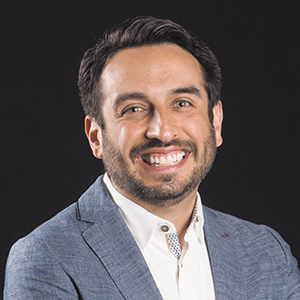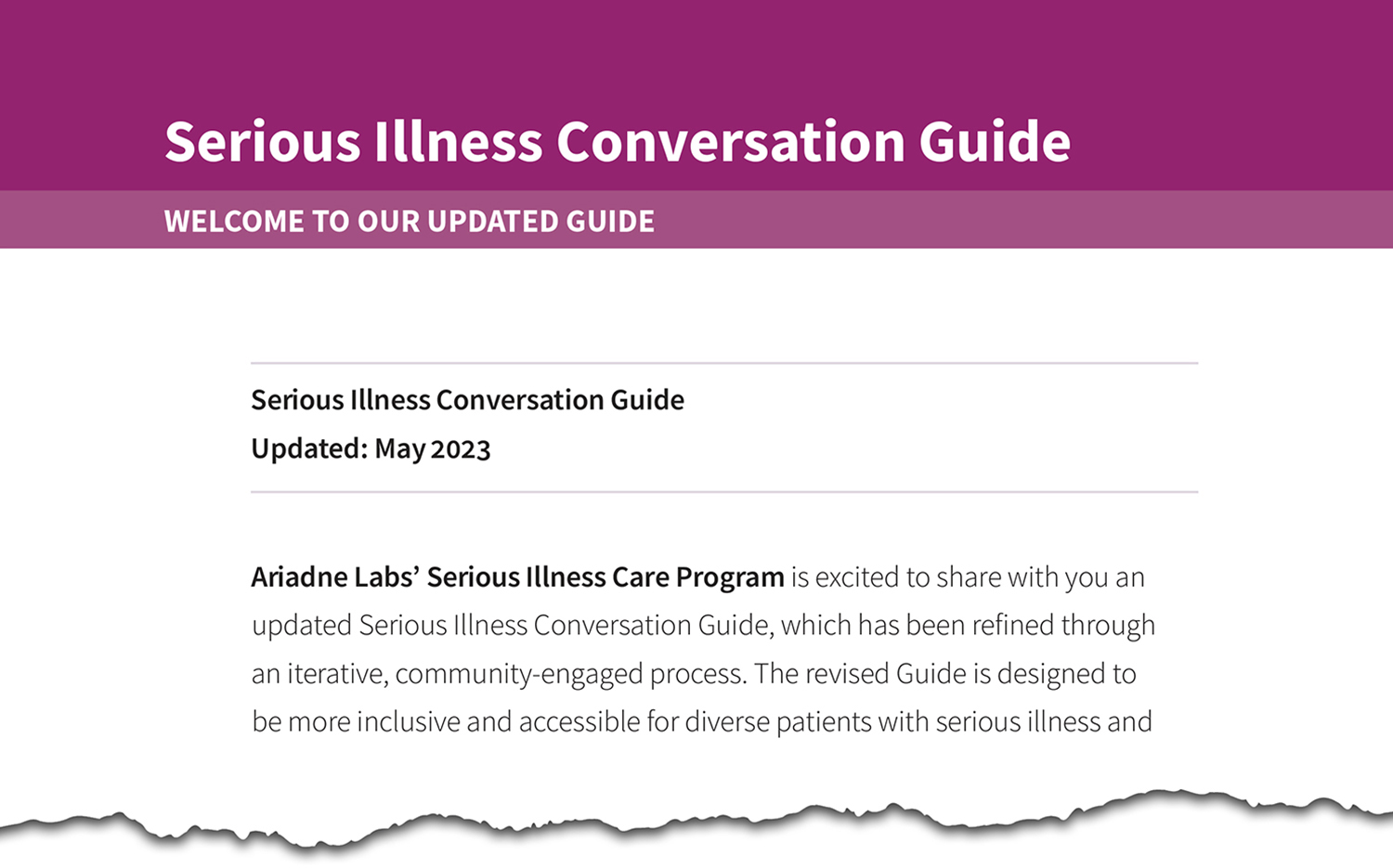When Providence St. Joseph Health began documenting goals-of-care conversations for adults in intensive care units in 2016, the total was 555, or 6.8% of the patients. By last year, the number hit 8,533, or 84.8% of patients who were in one of the system's 45 ICUs for at least five days.

In the intervening years, Providence launched, finetuned and expanded systemwide training for clinicians on how to hold the conversations and simplified the process to document patients' goals of care within the electronic health record. Across Providence, the number of documented goals-of-care conversations for all adult nonobstetric patients in acute care increased from 8,296 out of 382,067 patients, or 2%, in 2017 to 102,066 out of 376,586 patients, or 27%, last year.
Dr. Matthew Gonzales, chief medical and operations officer at Providence's Institute for Human Caring, has led the effort. He sees the goals-of-care conversations as essential to Providence's mission, which includes the promise to "Know me, care for me, ease my way."
"We can't deliver on 'care for me' or 'ease my way' unless we actually know who people are," Gonzales said. "And so, this feels like a fundamental first step in getting health care right."
Gonzales stressed that the conversations are not about reducing the quality or intensity of care. "We're not trying to say people should get less care, but we are trying to say that if you're sick and in a hospital we should know what matters to you, and we should figure out how we can align the care that we provide to what you're hoping for," he explained.
Empathy and honesty
Gonzales is the lead author of "Successful Strategies for Operationalizing Goals-of-Care Documentation," an article published in May in the New England Journal of Medicine Catalyst that details Providence's initiative.
Providence's Institute for Human Caring has driven the effort. The institute is focused on improving the delivery of person-centered care systemwide.

In developing training for goals-of-care conversations, Gonzales said he and his colleagues were mindful that Providence caregivers would need to be equipped "with better skills to be able to respond with empathy and from a place of genuine honesty, as we talk about some really hard things sometimes."
For the initiative, Providence adapted the Serious Illness Conversation Guide and related training created by Ariadne Labs, a nonprofit health innovation center. The guide offers patient-tested language for caregivers to use when talking to patients about their goals and values.
Based on the guide, Providence's goals-of-care conversations generally follow a series of milestones, including asking permission to discuss the topic, sharing the clinician's understanding, eliciting the patient's core values, and developing a shared plan for the future.
Instruction and role-playing
The training begins with instruction that includes why the conversations are important. (One reason: Data has shown they lead to better health care outcomes for patients and less anxiety and depression for families.) Gonzales at first presented that part of the training in-person at Providence hospitals. It is now in modules that clinicians can access online at their convenience.
The second part of the training is role-playing, with clinicians taking turns as questioner, patient and observer. This part is done mostly virtually with a trainer included.
Gonzales said trainees are sometimes initially reluctant to role-play. They express embarrassment about performing or concern that the scenario is fake.
"What we found, though, in evaluations from the course, which we didn't put in the paper, is that 98% of people thought the role-play was valuable and would want to do it again," he said.
Over the years, 5,000 Providence caregivers have received the training. Meanwhile, the training has been condensed from about 2½ hours to about 1½ hours. Providence is now developing tools that use artificial intelligence to simulate the experience with a virtual patient and a virtual communication coach.
"There is recognition that even despite doing this in-person and doing this virtually with modules plus role-play, that ultimately we need to get to a more scalable, better solution," Gonzales said.
Leadership, training, technology
The initiative began in 2016 with pilots at two hospitals. The pilots' success prompted Providence to expand the effort systemwide and aim for documented goals-of-care conversations with 65% of adult ICU patients. By 2024, of the 45 Providence hospitals with ICUs, 38 hospitals exceeded the target and 20 hospitals surpassed 90%.
Gonzales credited the success of the initiative to several factors. One is support from Providence leaders, who prioritized and funded the effort.
Another is pivoting during the pilot phase from focusing the training on physicians to focusing it on nurses. Gonzales said the nurses quickly implemented the conversations and began discussing during rounds whether the talks had happened and been recorded, which led to a tremendous upswing.
A third factor was working with Epic to simplify the documentation process in Providence's electronic health record. What began as a standalone note typed into the record evolved into a documentation tool available in any note type, and now AI scans those notes to automatically detect goals-of-care documentation. Regardless of the input method, all goals-of-care conversations are consolidated into a dedicated view within the electronic record for easy review.
Gonzales said before the technological improvements, the process of documenting the conversations had been too complicated for some care providers. That sometimes led to several providers asking patients the same questions. The updates to the Epic system mean any clinician can have a goals-of-care conversation with a patient and then the whole care team has easy access to the results.
100,000 conversations
While he is proud of the effort's success, Gonzales said what heartens him most is knowing that last year alone Providence caregivers learned from 102,066 patients or their families what their hopes were for their care.
He said he celebrated after the first year of the initiative, when the number of documented conversations rose to about 1,100. "I was ready to put up the mission accomplished banner. I was so excited and felt like we had really done something good, and we had," he said. "But sometimes, when I look back at that graph that we put out and recognize that there were 100,000 of them last year alone, it is hard not to feel really excited about that."
He said a key overall learning from the initiative is that clinicians aren't averse to holding or documenting goals-of-care conversations. They just need training on how to lead the talks and simple tools to record the outcomes.
Gonzales and his colleagues behind the effort are now talking with other specialists — such as oncologists, hospitalists and emergency care providers — about how to move the conversations upstream, before patients are in acute care.
"I think that, at the end of the day, patients want to be heard and understood, and I think this is one way for us to be able to get that," he said. "I would just encourage folks to invest some time in this, because I believe that when we get this right, it's going to increase engagements and excitement to engage with health care from the people that we serve and take care of."
